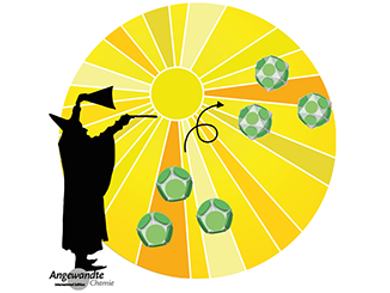In this issue, S. R. MacEwan and A. Chilkoti review systems engineering approaches to anticancer drug carriers from composition to cure. How can pathophysiological barriers between the sites of administration and therapeutic action be overcome? The Highlight deals with C–C bond formation through decarbonylation of aryl ketones.
In the Communications section, K. Sakurai et al. present the results of monitoring the discontinuous dodecamer–icosamer transition of a calixarene-derived surfactant by time-resolved small-angle X-ray scattering (see picture). Y. Cheng et al. observed the dynamic modulation of enzyme activity by near-infrared light. J.-Q. Yu et al. succeeded in the ligand-enabled auxiliary-free meta-C–H-Arylation of phenylacetic acid, and L.-S. Wang et al. achieved the synthesis of a praseodymium-doped boron cluster with a PrII center coordinated by a doubly aromatic planar η7-B73− ligand.
- Angewandte Chemie 24/2017: Overcoming Barriers,
Angew. Chem. Int. Ed. 2017, 56 (24).



